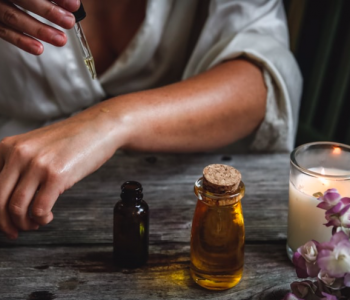 Emotional Wellbeing
Emotional Wellbeing
The Art of Saying “No”: 3 Steps Towards Healthy…
Each time I agree to do something that I didn’t really want to do, my body just solves the problem for me: I fall sick to have a legitimate reason to get out of the situation without feeling guilty. It never ceases to amaze me how my body and I are in tune. Nowadays, I try to be smarter and just gracefully decline so I can skip the part of feeling unwell.
Why does solving this moral conflict matter?
Many of us don’t have enough time for ourselves and do all the things that we need to do, which then leads to feeling stressed and overwhelmed.
You may feel inefficient and that you didn’t get enough done. Therefore, you stay up late or the guilt doesn’t let you sleep. You wake up tired and don’t have the energy to exercise, cook or take time off. Sounds familiar? Then read on.

Rethink your priorities
It is important to get clarity about your current priorities, whether it is more time for yourself, family or friends, better health, a new hobby… At least one of these areas usually falls short, which then leads to feeling unfulfilled, empty, grumpy, anxious or plain lonely.
Many of us struggle with saying “no” out of fear to be judged and not loved anymore. Particularly for women, it may go against the culture and upbringing.
When your health is in danger though, the ability to focus on yourself can be a real life saver
It may sound egoistic and self-centred, but the ability to set healthy boundaries when your wellbeing is at risk can decide over how deep you dip and how fast you recover.
You will have to make this important choice many times, whether it is about food or how and with whom you spend time. You may have to hurt someone or you hurt yourself.
Hurting yourself again and again can lead to “strange” diseases, mystery pain, autoimmune disease as well as more commonly hormone imbalances and burnout to just mention a few.
Ultimately, you are responsible for your own health
As an old saying goes, “you can’t pour from an empty cup”. So, how can you say no without hurting a loved one?

I remember once asking a friend if she wanted to meet on a Saturday evening. She replied that she couldn’t. At first, I felt hurt. Then I continued reading her message. She described in great detail how she had planned to spend the evening with herself for some “me-time”, with a nice dinner, reading a book and writing her diary. I could picture the peaceful scene in my mind.
She finished with asking when else I would be free and that she looked forward to catching up. How could I get mad at her? Instead, she inspired me with her ability to take care of herself and how she communicated this need with me.
When we say “no” a lot depends on how we do it
🌱 Explain yourself well and elaborate on the reasons why you cannot do something
🌱 Consider the other person’s feelings and think of something how you can make them still feel loved
🌱 Make a realistic suggestion (and keep it) about something you can do
This can fundamentally change how you communicate with yourself, your loved ones, but also your employees or colleagues. It can change how you look at yourself and the world around you.
Saying “no” doesn’t need to be hurtful. It can be an opportunity to understand each other better and to grow closer to each other. This way, everyone wins.
About Jennifer
Jennifer Eisenecker is an ex-banker, German-certified naturopath, and business owner. Knowing how limited time and mind space often are, her recommendations are practical, easy to follow, and as simple as possible.
Jennifer’s multi-disciplinary approach involves going back to basics, looking at health from a trauma-aware perspective, and achieving health by calming down the nervous system to optimize your body’s innate ability to rebalance itself. She loves herbs and natural remedies.










